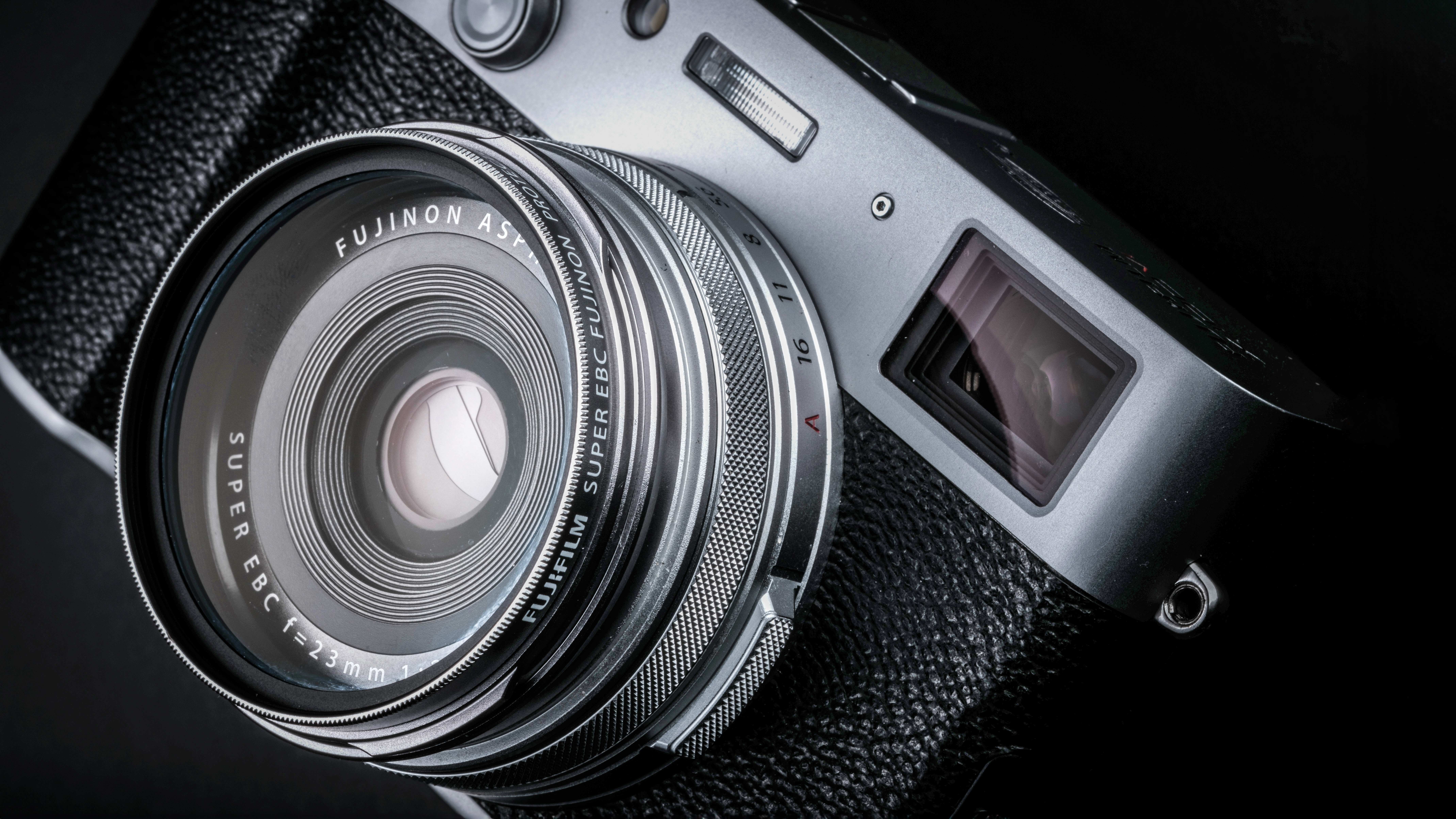Pixl-latr is beautifully simple solution for digitizing old slides and negatives
Frame and diffuser panel provides perfect set up for rephotographing 35mm, roll film & large format negs and transparencies
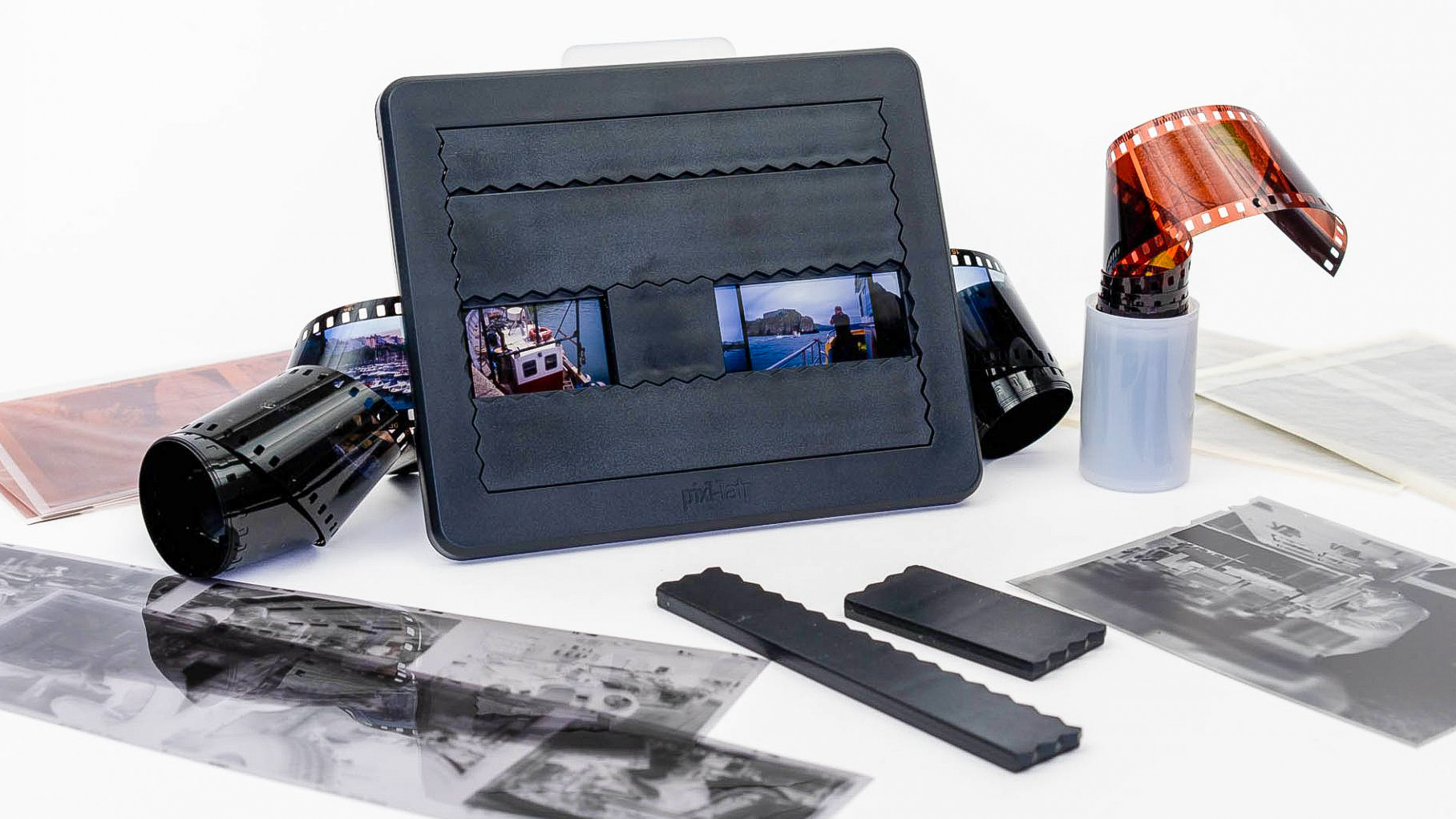
The Pixl-latr is a beautifully simple solution to the problem of how best to scan all those old negatives and slides that you, or your parents, have hidden away in drawers or boxes. Brought alive by through a Kickstarter campaign, the Pixl-lator is a frame that holds the film perfectly in place as you photograph it with your own digital camera. And it does not just handle 35mm film negatives and transparencies – it can cope with 120, 220 and 5x4in film formats too.
Most people use film scanners for this process - but these can be an unnecessary investment if you already have a suitable camera and lens in your kit bag. You can fashion your own way of rephotographing your prints (as you can see in this tutorial ) – but the issue is how to get the film held flat, and perfectly lit.
• See full Pixl-latr review
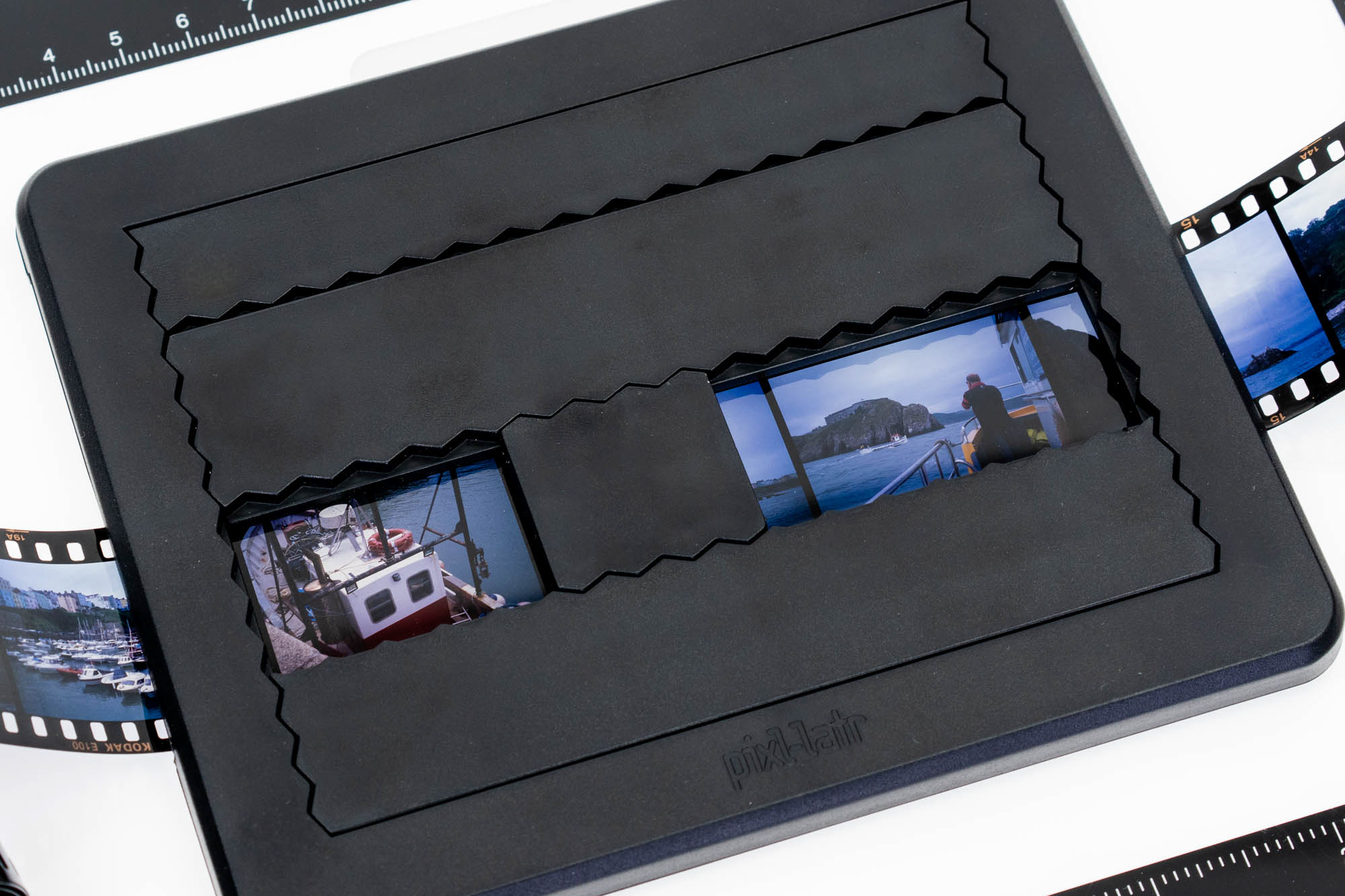
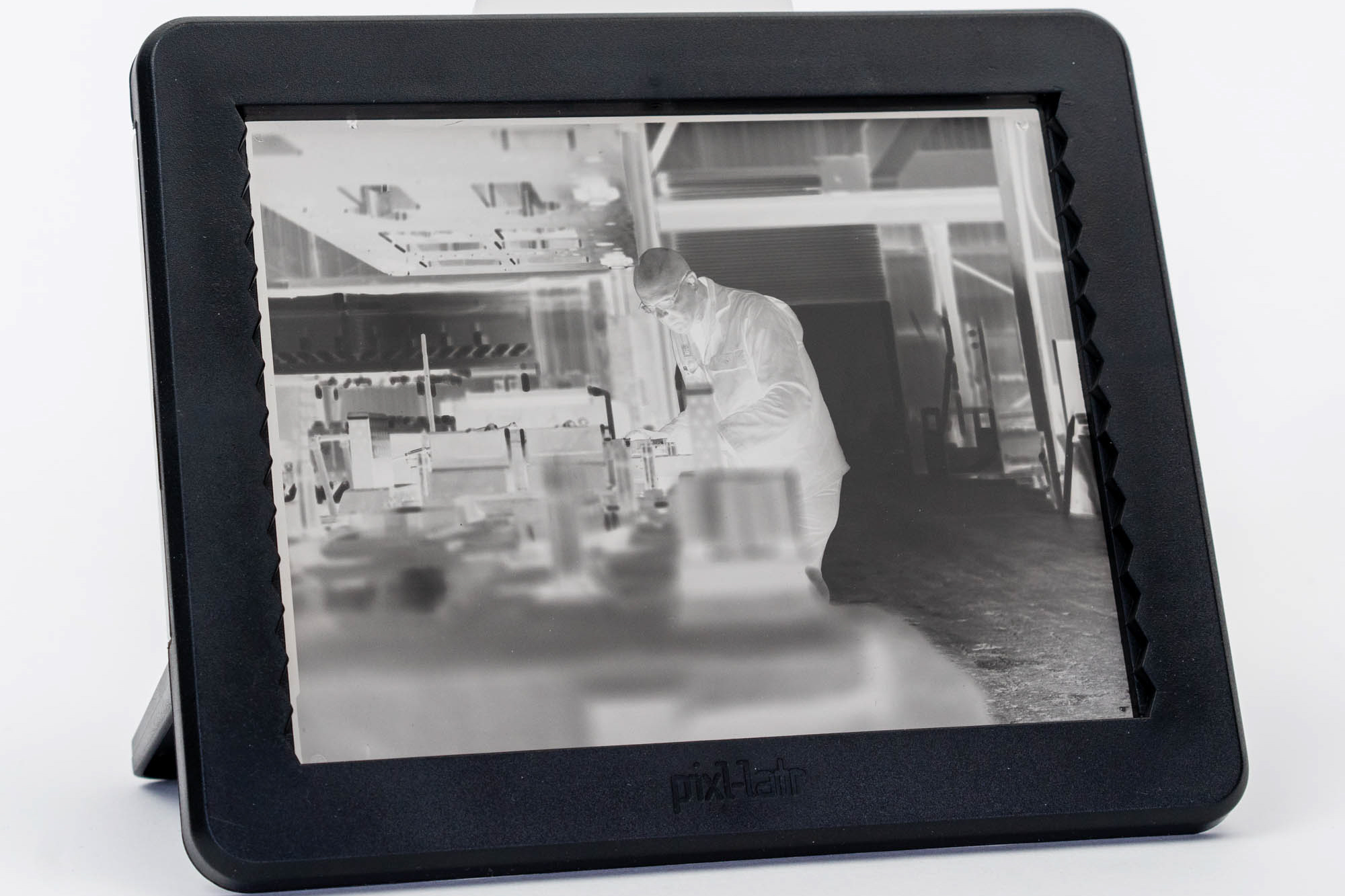
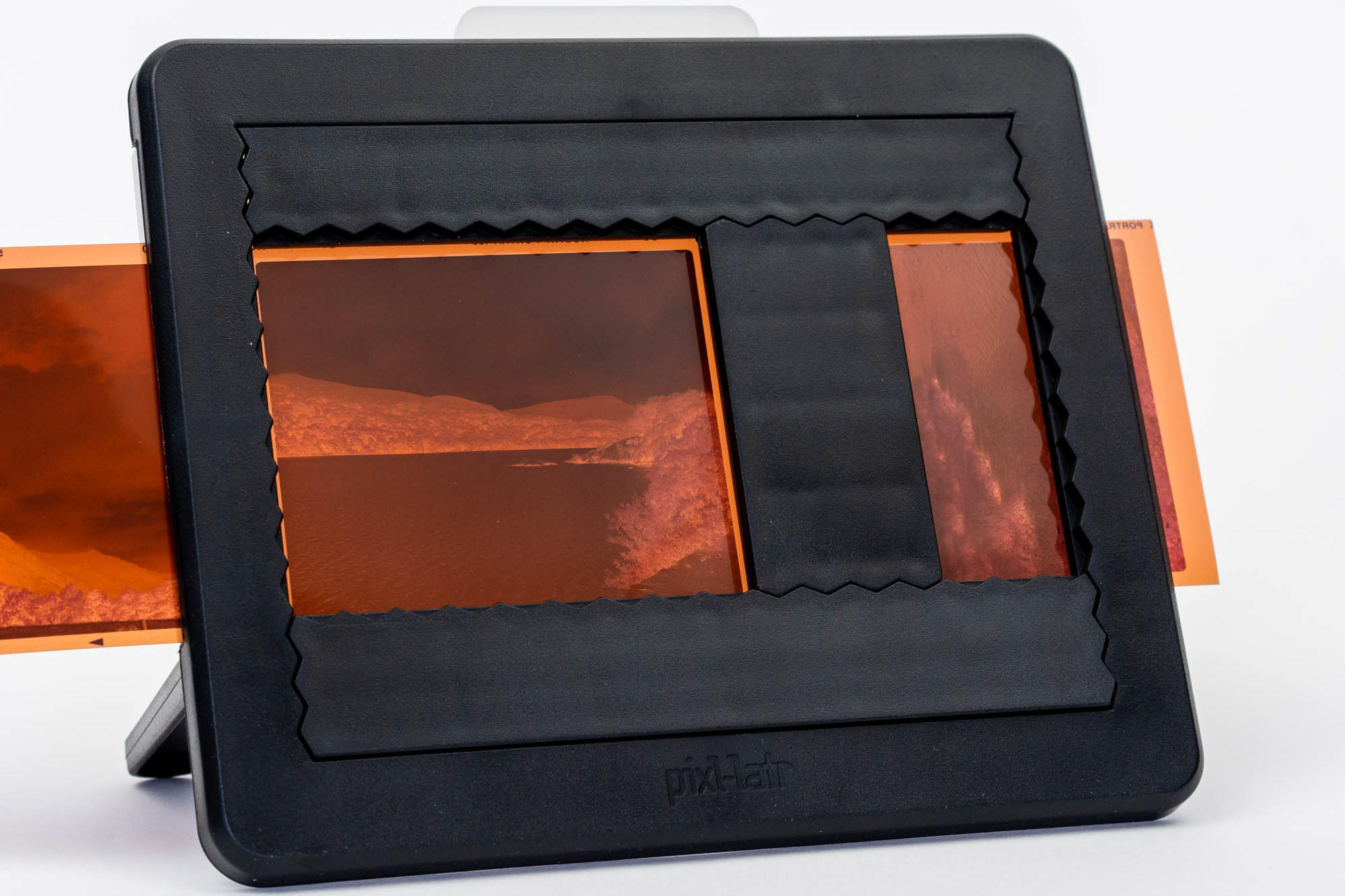
The Pixl-lator is a frame with its own diffusing frame that helps ensure that the lighting is even – and comes with six interlocking gates of different sizes, that are designed to keep your film flat and perfectly aligned with the frame. The frame has a pair of legs that can be used to prop it up, so that you can use window light, desk lamp or an LED panel for illumination. Alternatively, with the legs removed, you can put the frame on a lightbox.
The Pixl-lator will be featured in the Analogue Spotlight at the The Photography Show & The Video Show Virtual Festival which takes place on 20-21 September.
You can buy Pixl-lator direct from the manufacturer now for £39.99 (approx $53) plus shipping

Read more
The best film scanners
The best camera deals, reviews, product advice, and unmissable photography news, direct to your inbox!
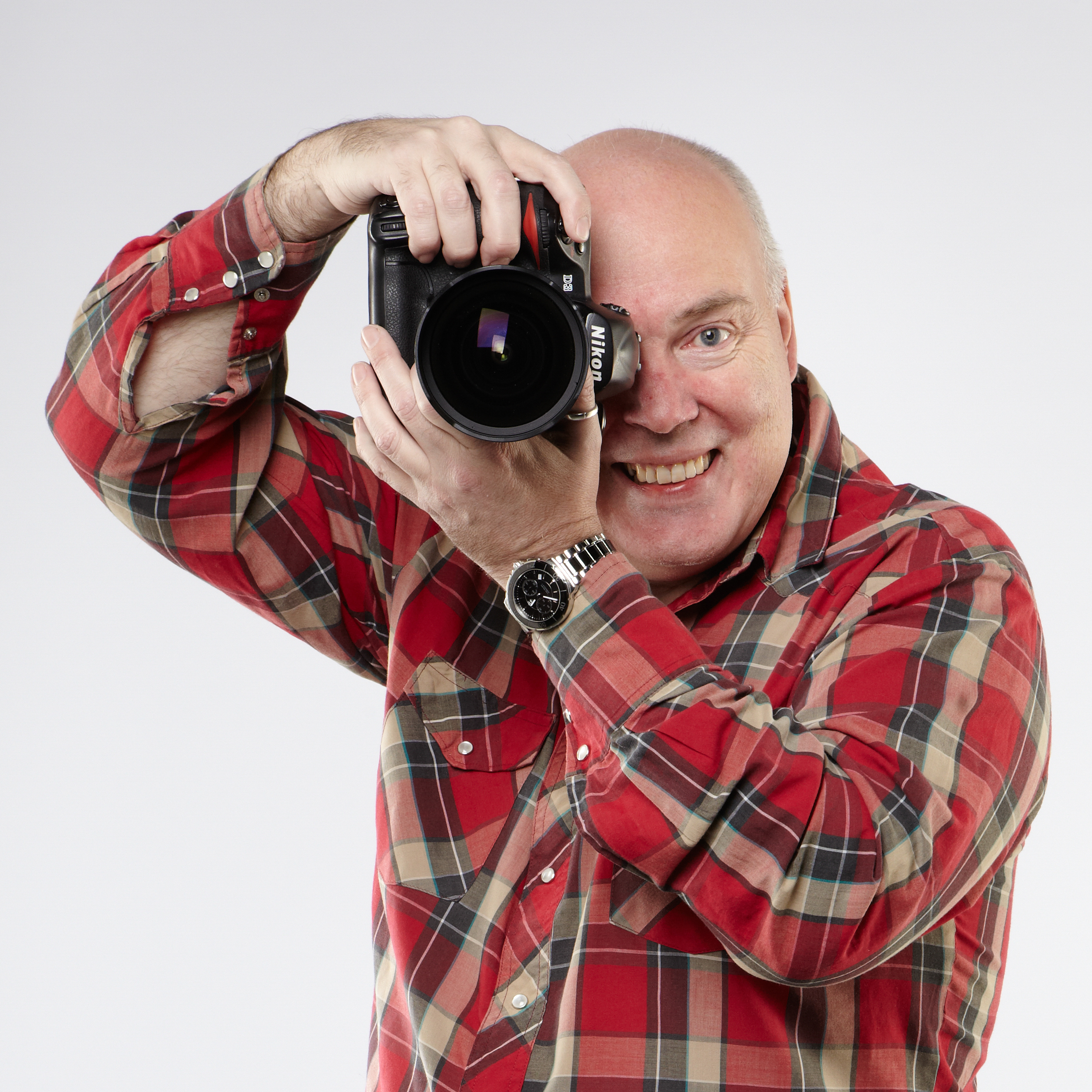
Chris George has worked on Digital Camera World since its launch in 2017. He has been writing about photography, mobile phones, video making and technology for over 30 years – and has edited numerous magazines including PhotoPlus, N-Photo, Digital Camera, Video Camera, and Professional Photography.
His first serious camera was the iconic Olympus OM10, with which he won the title of Young Photographer of the Year - long before the advent of autofocus and memory cards. Today he uses a Sony A7 IV, alongside his old Nikon D800 and his iPhone 15 Pro Max.
He is the author of a number of books including The Book of Digital Photography, which has been translated into a dozen different languages.
In addition to his expertise in photography and videomaking, he has written about technology for countless publications and websites including The Sunday Times Magazine, The Daily Telegraph, What Cellphone, T3 and Techradar.
